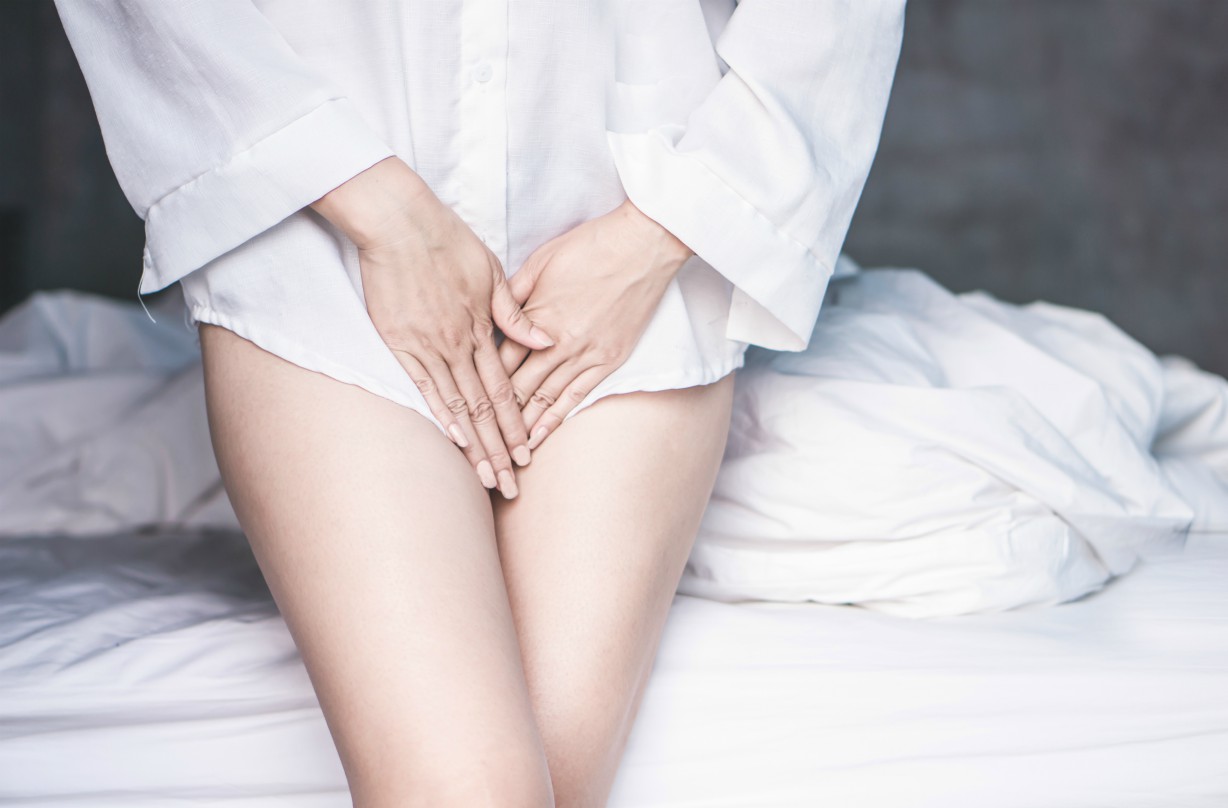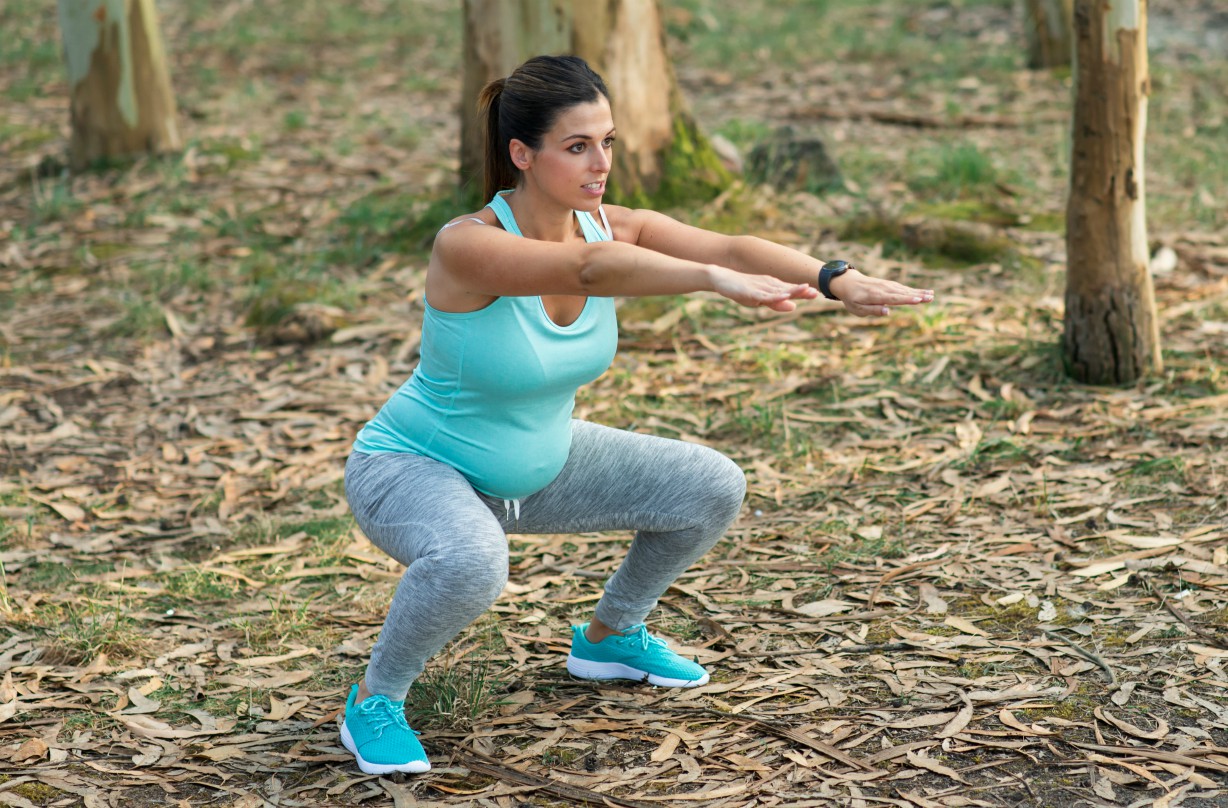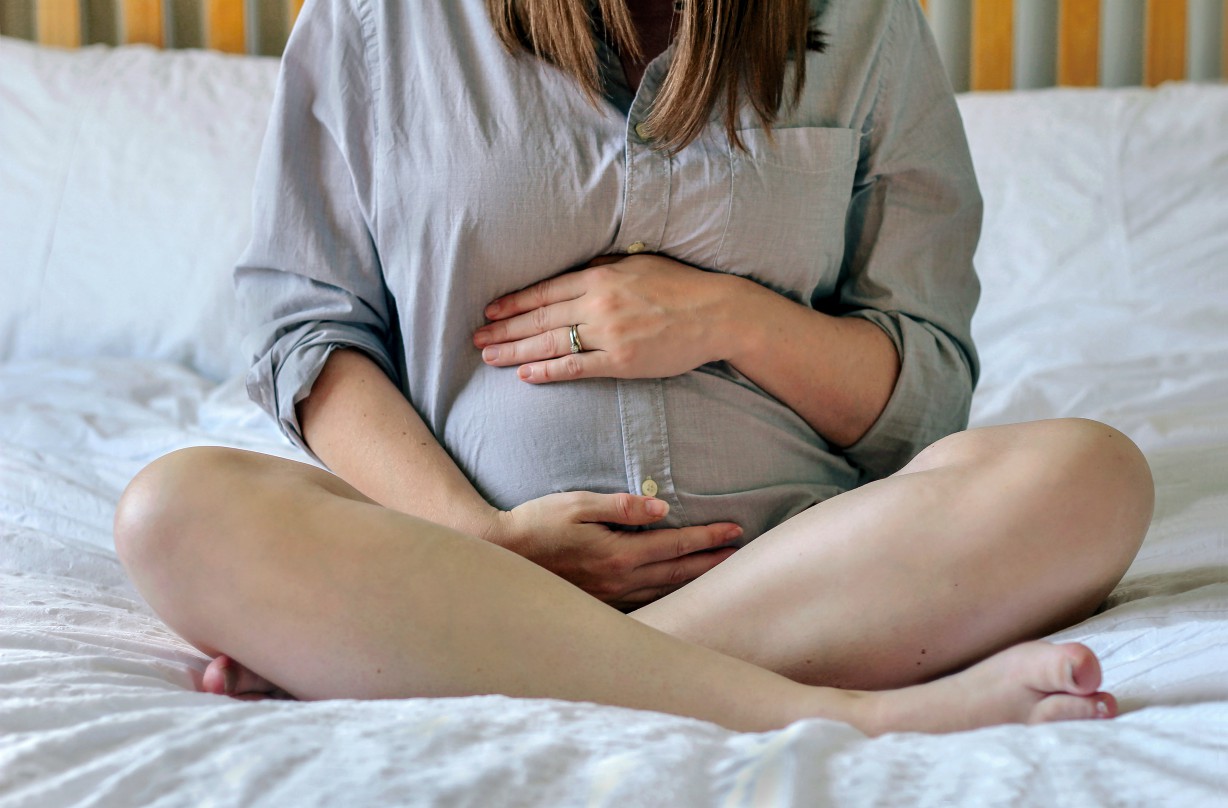Incontinence: Your guide to living life to the full with a sensitive bladder
One in three women over the age of 18 suffer from bladder sensitivity, yet it's still a subject we don't talk about often.


As many as one in three women over the age of 18 suffer from bladder sensitivity, ye for some reason, the topic of incontinence is one we talk about very little.
According to a recent study commissioned by Pelviva, two thirds of women over 40 are suffering from bladder leakage.
Nine in 10 sufferers said the condition has had a ‘major impact’ on their quality of life, leaving one tenth of these women depressed.
Whether it's due to embarrassment or just not knowing enough about a sensitive bladder, realising you're not alone, knowing what the causes are as well as finding some solutions will make a massive difference to your daily life.
Former The Only Way Is Essex star Ferne McCann recently opened up about living with incontinence and a prolapsed bladder following the birth of her daughter, Sunday.
To draw attention the stigma usually surrounding women's body changes both during and post pregnancy, Ferne revealed to OK! magazine: 'It was a bit of a joke as first as I was weeing every time I sneeze during my pregnancy and then it just got progressively worse.'
The 29-year-old mum-of-two admitted: ‘There was a lot of leaking and I was wetting myself all the time. It has shattered my confidence and made me scared to leave the house. Being worried you’ll wet yourself at any moment does that to you.’
GoodtoKnow Newsletter
Parenting advice, hot topics, best buys and family finance tips delivered straight to your inbox.
Though urinary incontinence usually affects women during or just after pregnancy, the condition can affect both women and men of all ages.
Whether you're out shopping with friends, running around after the kids or enjoying a day out with your family, the last thing you should be worrying about is your bladder sensitivity.
We sought out the expert advice of Dr. Diana Gall from Doctor-4-You to explain everything you need to know about incontinence, so all you need to worry about it living life to the full.
What is incontinence?
Incontinence, otherwise known as having a sensitive bladder is the unintentional loss of urine. Leaks occur when pelvic floor muscles and nerves are weakened.
What are the symptoms of incontinence?
The symptoms depend on which type of bladder sensitivity you have.
1. If you leak urine when your bladder is under pressure, such as when you laugh or cough, it's probably stress incontinence. Other triggers might be sneezing, exercise or lifting something heavy. Dr. Gall said: 'Stress incontinence occurs when the pressure inside your bladder as it fills with urine becomes greater than the strength of your urethra to stay closed.'
2. A sudden urge to go to the loo, often resulting in the emptying of the bladder, is known as urge incontinence. This is generally caused by a miscommunication between the nerves of the bladder and the brain.
Dr. Gall explains: 'Urge incontinence can occur due to a problem with the detrusor muscles in the walls of the bladder. Sometimes, detrusor muscles can contract too often, creating an overactive bladder with urgent needs to go the toilet.'
She continued: 'This urge to urinate may be triggered by a sudden change of position or even something as simple as the sound of running water.'
3. If you are affected by both these symptoms, it's called mixed incontinence.
What are the causes of incontinence?
There are many reasons for sensitive bladder, but the most common ones are:
Pregnancy and childbirth
Having a baby can weaken the pelvic floor muscles or the sphincter muscle that usually keeps your urethra closed, meaning you have less control over your bladder.
Dr. Gall said: 'During pregnancy incontinence can occur due to increased pressure on your abdomen, and after pregnancy because of damage during childbirth (particularly if the child was born vaginally).'
Menopause
A menopause-related sensitive bladder is due to a drop in oestrogen levels. As a result, many women find they need to go to the loo more often and may experience sudden urges.
Being overweight
Being overweight can increase pressure on your abdomen, bladder and pelvic floor muscles.
Strenuous sports
Leaks can occur during exercise as a result of putting excessive demands on your bladder. Try gentler excercises such as yoga, pilates or walking to strengthen your hamstrings and glutes.
Sensitive bladder solutions
There's no reason to let bladder sensitivity get in the way of living life to the full. You don't have to adapt your life to avoid little leaks, all you need are some simple lifestyle changes and the right protection. So whether you're donning that little black dress for an evening with your partner, or heading out for some fun with your girlfriends, you can feel completely confident doing all the things you want to do.
Dr. Gall said: 'Finding a solution depends on the type of incontinence you have. With severe cases, a surgical procedure may be deemed necessary but it’s more likely if you see your GP that they’ll recommend simple lifestyle changes or pelvic floor muscle training.'

Chat to your doctor
We recommend having a chat to your doctor to help you find a solution that's right for you, but here are some little lifestyle changes that can make a big difference
Don't stop drinking
Although it's tempting, don't reduce the amount you drink as this can aggravate your bladder by making your urine more concentrated. Keep a healthy balance by drinking when your body tells you you're thirsty. We know it's tricky, but keep an eye on your intake of caffeine, alcohol and fizzy drinks, as these are diuretics, which make you go to the toilet more.
Perfect your pelvic floor technique
It's never too late (or too early!) to start pelvic floor exercises, you just need to keep up the exercises to make the effects last. By practicing at least three times a day, these exercises can strengthen your pelvic floor muscles and give you more bladder control. You can do them while waiting for a bus, shopping in the supermarket or watching telly and no-one will know what you're doing!
Not sure where your pelvic floor muscles are? Have a go at stopping a pee mid-flow and you'll feel them. To start a pelvic floor exercise, simply squeeze these muscles 10 to 15 times (not while you're going to the loo though). Remember not to hold your breath or to tighten your stomach muscles while you're doing them though.
Deep squats can also help to strengthen your glutes and hamstring muscles which both promote a stronger pelvic floor.
Dr. Gall said: 'You may be referred to a specialist to start a pelvic floor muscle training programme to help control how you urinate. Bladder training may be added alongside such a course if you are experiencing mixed urinary incontinence.'
Set a schedule
Believe it or not, but your bladder is trainable. Keeping to a daily schedule when it comes to toilet visits will help you train yourself. Talk to your doctor for more information.
Incontinence during pregnancy
If you've developed bladder sensitivity during pregnancy, there's no need to worry. There are things you can do to help manage the condition so that it doesn't get in the way of all the things you love to do.
Dr Gall explains: 'If you are pregnant then the type of incontinence symptoms you are most likely to potentially experience is those associated with stress incontinence. If they happen, then the first lines of treatment will focus on lifestyle changes and bladder management.'

1. Pelvic floor exercises will really help strengthen the muscles that help control your bladder. Try doing them a few times a day when you're sitting down at work or watching TV - getting into the habit now will make it easier to remember to do them when you're a busy mum. Plus, they'll help your body prepare for labour.
2. Avoid strenuous activity like running and high-impact aerobics – walking, swimming, yoga or cycling are gentler on your pelvic floor and won't put any additional pressure on your bladder.
3. Keep hydrated by drinking water. It may be tricky, but caffeine, fizzy drinks and artificial sweeteners can play havoc with a sensitive bladder, so try limiting your intake.
Dr. Gall advises: 'You may want to limit your drinking in the evening as well to avoid frequent trips to the bathroom or leaks during the night.'
4. 'It’s also recommended you eat a high-fibre diet since this will reduce the chances of constipation, which puts extra stress on your pelvic floor', Dr. Gall advises.

Sibelle Mehmet is a Junior Digital Writer at Goodto.com. She joined the team in April 2019 and was her first job since completing a MA in Magazine Journalism at City, the University of London in the summer of 2019. Sibelle previously interned at a number of national titles including OK!, Heat, Closer, Mother & Baby, and The Times Newspaper magazine. She's written extensively about the latest celebrity, showbiz, and royal news.